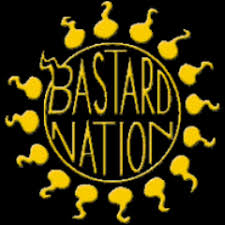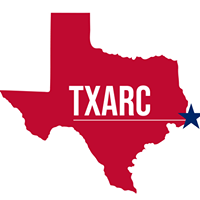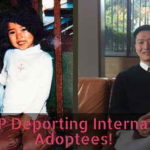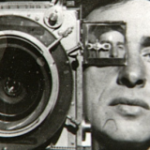This morning, (March 21) the Lousiana House Committee On Civil Law and Procedure voted DO Pass on HB 450, a bill to restore the right of all Louisiana adoptees, at the age of 24, to obtain their original birth certificates upon request without restrictions or conditions. Due to the state’s “forced heir” law, peculiar to Louisiana, we are stuck with the age 24 timeframe, but all adoptees are covered. An attempt to amend the bill with restrictions was not accepted. We want to thank our friends Kenny Tucker (who btw, hosted BN’s 2002 conference in NOLA) and Elise Lewis for their hard work on this bill, and the bill’s sponsor Rep. Charles Owens.
There is a long way to go yet, but this is a giant first step for Louisiana
Below is our submitted testimony.
Addenda: We now have the link to the video archive of today’s hearing. (Marker 43:20-158:00) Proponents offered sound convincing civil rights arguments and the committee asked intelligent relevant questions. The testimony from St. Elizabeth Foundation and Louisiana Right to Life was well….bizarre, contradictory, and overall made no sense. (Marker 1:34.16.)
____________
Bastard Nation: the Adoptee Rights Organization
PO Box 4607
New Windsor, New York 12553-7845
bastards.org 614-795-6819 @BastardsUnite
bastardnation3@gmail.com
________________
TO: Honorable Members of the House Committee on Civil Law and Procedure; Rep. Charles Owens
FROM: Marley Greiner, Executive Chair
RE: Vote DO PASS on HB 450 as written—no restrictions. (Adult adoptee access to Original Birth Certificates)
DATE: March 20, 2022
Bastard Nation: the Adoptee Rights Organization is the largest adoptee civil rights organization in the United States. We support only full unrestricted access for all adopted persons to their original birth certificates (OBC) and related documents. We have worked with Louisiana adoptee rights advocates for over 20-years to secure that right—a right that all Louisiana-born adoptees lost 45 years ago when the document was sealed from them by law. We held our 2002 conference in New Orleans at the DoubleTree on Canal Street and had a wonderful, rousing time.
Current Louisiana law permits a few adopted adults to obtain their OBCs through court order for “compelling reasons” forcing them to navigate a cumbersome, difficult, infantalizing, and insulting gauntlet of conditions, arbitrary procedures, and naysayers.
I understand that some members of this committee have concerns about “privacy” so the bulk of this letter addresses that issue.
Adoption Privacy Overview
Unrestricted OBC access is not a “privacy” or “birthparent confidentiality” issue. “Privacy” “confidentiality,” and” anonymity” are not synonymous either legally or linguistically. “Anonymity “is a myth perpetuated by special interests that for decades have profited off of economic distress and society-induced shame and family crisis. In many cases, adoption is a permanent solution to a temporary problem that has not only individual but generational consequences.
There is no evidence in any state that records were sealed to “protect” the reputation or “privacy” of biological parents who relinquished children for adoption. (See next section for details.) On the contrary, records were sealed to cover coercive child acquisition practices by adoption agencies, black and gray market baby dealers, exploitative assembly line maternity homes, and other corrupt systems. Numerous historical and legal researchers and writers have shown that OBCs were never intended to be sealed in perpetuity from individual adoptees as adults. At “best” sealed OBCs were billed as a way to protect the reputations of “bastard children” (not adults) and to protect adoptive families from birthparent and stranger interference. These documents were first sealed from the public, then the parties to the adoption, and eventually to adopted people themselves. What was once an outlier practice has now been normalized through a mix of myth and “tradition” and treated like ”the way it’s always been.”
Courts, however, have ruled that adoption anonymity does not exist. (Doe v Sundquist, et. al., 943 F. Supp. 886, 893-94 (M.D. Tenn. 1996) and Does v. State of Oregon, 164 Or. App. 543, 993 P.2d 833, 834 (1999). Laws change constantly, and the state, lawyers, social workers, and others were never in a position to promise anonymity in adoption. In the over 60 years of the adoptee equality battle, not one document has been submitted anywhere that promises or guarantees sealed records and an anonymity “right” to birthparents.
Identifying information about surrendering parents often appears in court documents given to adoptive parents who can at any point give that information to the adopted person. (In some states adoptive parents, at the time of the adoption order, can petition the court to keep the record open.) The names of surrendering parents are published in legal ads. Courts can open “sealed records” for “good cause” without birthparent consent or even knowledge. Critically, the OBC is sealed at the time of adoption finalization, not surrender. If a child is not adopted, the record is never sealed. If a child is adopted, but the adoption is overturned or disrupted, the OBC is unsealed. Please remember that the OBCs of persons with established relationships with biological parents as in stepparent and foster adoptions are also sealed.
The American Academy of Adoption and Assisted Reproduction Attorneys agrees with this assessment. In a major about-face, in 2018 it passed a monumental resolution in support of adoptees’ right to full access to our OBCs, court, and agency records.
Birthmother Privacy
In my nearly 40 years of adoptee rights advocacy, I have never met a birthmother (or father) who said they were promised “anonymity.” Some were never informed about sealed records—and in some states, those records weren’t even sealed at the time. Louisiana’s records weren’t sealed until 1977, so generations of adoptees retroactively lost their rights. Some mothers were told that when their child reached the age of majority they could be re-connected. Some were told that it was illegal for them to search for or make contact with their child—ever. Overall, sealed records were just part of the adoption deal, whether they knew it or not. At no time did birthparents—usually translated as birthmothers—have any right to demand that an OBC remain sealed or unsealed.
It is nearly impossible to find a birthmother who does not support OBC rights for adopted people. During the successful 1998 Oregon campaign to open all OBCs by ballot initiative, over 500 birth mothers, with about 48 hours notice, signed a full-page ad in support of the measure that was published in The Oregonian. just before the election. Some added a personal note. This success has been repeated in other states
Privacy and The Balance of Rights
We often hear the term “balance of rights” in the OBC access debate, but it is about our rights only. No other right exists. Rights and interests are unequal. A few birthparents—and in a broader sense, third parties with no standing as sometimes happens such as with adoption agencies or religious groups–may argue a “right” to birthparent anonymity, but courts have found there no such right as discussed above. These parties might have an “interest” (or think they do), but “rights” trump “interests.” The Adopted and the Not Adopted have an absolute right to obtain the official state record of their own birth and no third party–parent or not–has the “right” to bar that access. Critically, parental rights were voluntarily relinquished years ago or were terminated by a court, so if there was even such a parental “right” it would not exist in the case of adoption.
Privacy and Technology
Today, inexpensive and accessible DNA testing services, and a large network of volunteer “search angels” that locate adoptee government-hidden information, histories, and biological families, has made the traditional “privacy” argument obsolete. The minuscule number of birthparents or professionals who believe that restricted OBC/records access or no access equals adoption anonymity are greatly mistaken. Nearly all successful searches are done without the OBC and other court documents.
Conclusion
OBC access is not about search and reunion Many adopted people are not interested in pursuing a search. Instead, access is about obtaining our state-generated and held document of our birth, something the Not Adopted don’t even think about. There is no state interest in keeping original birth certificates sealed from adult adoptees to which they pertain nor does the state have a right or duty to mediate and oversee the personal relationships of adults. The debate on the release of OBCs to its adopted citizens is small v large government issue. Small government should win this one.
Adopted people in 10 states have unrestricted access to their OBC. Not one single negative report about unsealing has been published. Access has been normalized. Adoptees are treated just like the Not Adopted and like the Not Adopted no one denies that they have a right to those records and information.
Please vote Do Pass on HB 450 as written, without restrictive amendments. It’s the right thing to do. Thank you.
________________
Bastard Nation is dedicated to the recognition of the full human and civil rights of adult adoptees. Toward that end, we advocate the opening to adoptees, upon request at age of majority, of those government documents which pertain to the adopter’s historical, genetic, and legal identity, including the unaltered original birth certificate and adoption decree. Bastard Nation asserts that it is the right of people everywhere to have their official original birth records unaltered and free from falsification and that the adoptive status of any person should not prohibit him or her from choosing to exercise that right. We have reclaimed the badge of bastardy placed on us by those who would attempt to shame us; we see nothing shameful in having been born out of wedlock or in being adopted. Bastard Nation does not support mandated mutual consent registries or intermediary systems in place of unconditional open records, nor any other system that is less than access on demand to the adult adoptee, without condition, and without qualification.



 New York Adoptee Rights Coalition
New York Adoptee Rights Coalition












Awesome!